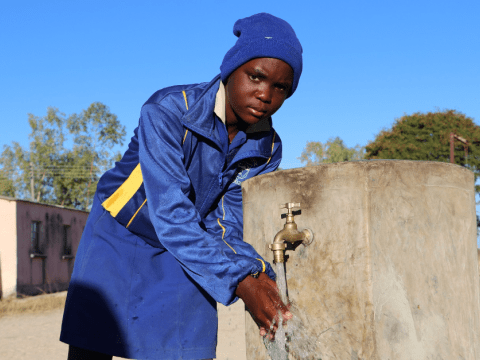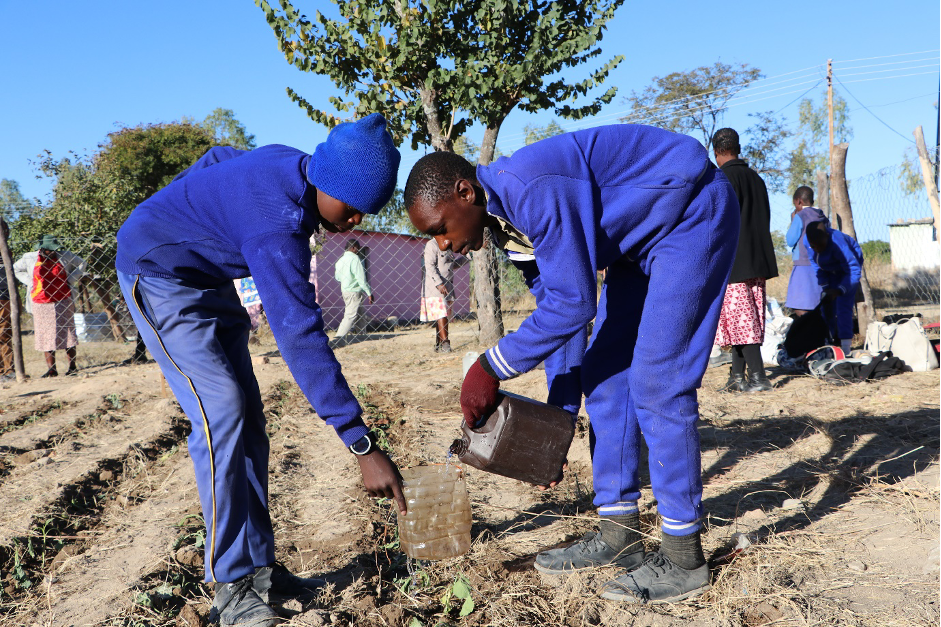A piped water system marks the genesis of a nutritional garden

By Leana Padera (Communications Graduate Intern)
In the face of the devastating El Nino-induced drought sweeping across Zimbabwe, Mhangami Primary School in Shurugwi has found a glimmer of hope through the establishment of a nutrition garden, made possible by the installation of a piped water system.
This transformative project, supported by the Anglo American funded Sustainable Transformations in Education Performances (STEP UP) project, not only addresses the challenge of water scarcity but also provides a reliable source of income and nourishment for the school.
Rural schools in Zimbabwe have increasingly embraced the concept of nutrition gardens, recognizing their potential to alleviate food insecurity and promote educational opportunities. However, limited access to sufficient water supply has hindered the implementation of such projects in many schools. Mhangami Primary School faced similar challenges until the installation of the piped water system, which became the catalyst for their remarkable journey.

Previously, the school struggled to obtain clean water, resulting in students and teachers resorting to fetching water from a distant, contaminated river. Gladys Zhou, the headmistress, vividly recalls the hardships they endured, with some students even suffering from bilharzia due to their reliance on the unsafe water source. However, with the introduction of the piped water system, the school's circumstances were transformed.
"I am grateful for the piped water system," Gladys beamed. "Unlike before when we spent significant time fetching water from the river for handwashing and toilets, our teachers and students can now devote more time to learning. Having abundant water available has allowed us to embark on our nutrition garden project and work towards its success."
The nutrition garden at Mhangami Primary School has already seen the planting of tomatoes, carrots, onions, and butternuts. The anticipation of harvesting these crops and selling them instils a sense of excitement among the school community. To further develop and expand their project, the school plans to collaborate closely with agricultural extension officers, who will provide invaluable guidance and expertise. These officers serve as vital communicators and facilitators, ensuring farmers make informed decisions and apply the appropriate knowledge for sustainable rural development and agricultural productivity.

Portia Gonyora, World Vision Zimbabwe's Assessment, Monitoring & Evaluation facilitator for STEP UP expressed her satisfaction, stating, "We are delighted that the piped water system we installed has opened doors for additional projects that will benefit the school and the wider community." This sentiment reflects the broader impact of the project on enhancing the well-being and resilience of the entire community.
As Zimbabwe grapples with the harsh realities of the El Nino-induced drought, the significance of this initiative becomes even more pronounced. The piped water system not only provides immediate relief by meeting the water needs of the school but also contributes to long-term drought resilience. The nutrition garden serves as a beacon of hope, offering a sustainable source of food and income, even in the face of challenging climatic conditions.